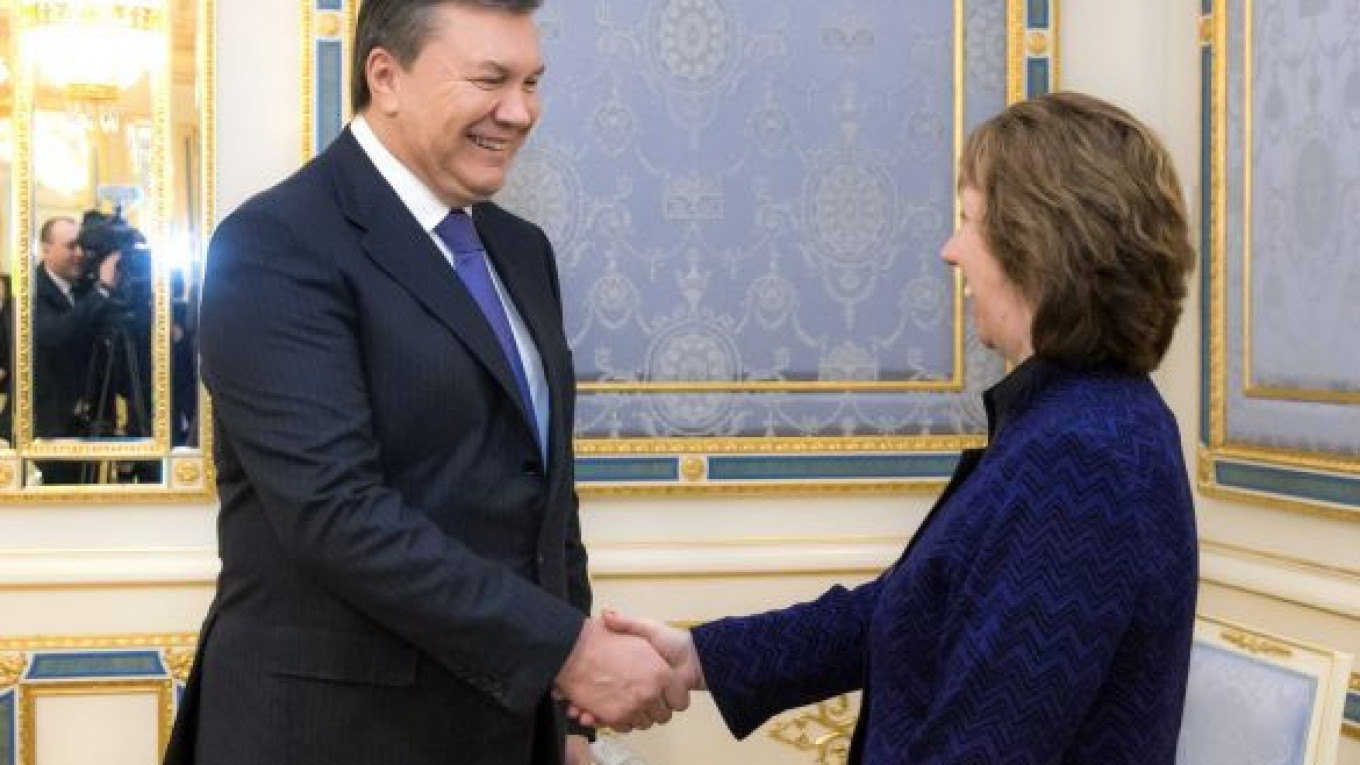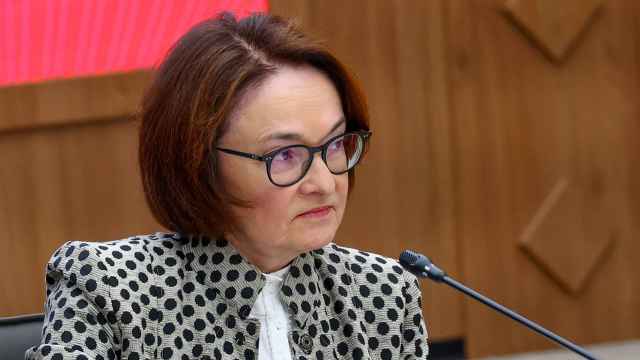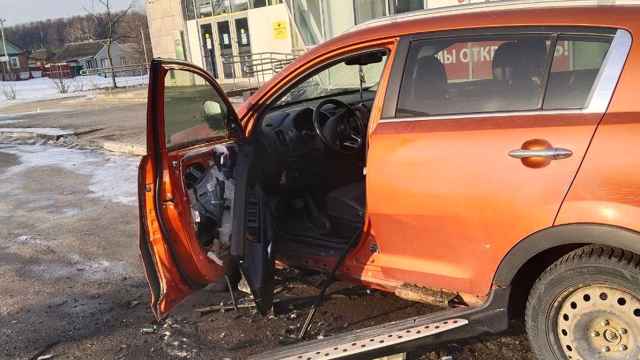The European Union's foreign policy chief is meeting with Ukraine's embattled president on Wednesday as the country's two-month-old political crisis is bogged down in a stalemate.
The opposition accuses President Viktor Yanukovych's government of trying to conduct a war of attrition.
Catherine Ashton's meeting with Yanukovych was announced on Twitter by her spokeswoman, Maja Kocijancic, without details. She met Tuesday evening with the opposition leader heading the massive protests against Yanukovych, which erupted over his decision to shun the 28-nation EU and turn to Moscow for a desperately needed rescue loan.
Ashton's office has said that the EU is discussing financial aid to prop up Ukraine's struggling economy but opposition leader Arseniy Yatsenyuk told The Associated Press that no specifics were put forth in their discussions Tuesday.
Yatsenyuk charged that Yanukovych is "targeting ways how to buy time and drag us into never-ending talks and discussions."
The Ukrainian currency, the hryvna, has fallen some 7 percent since the protests began and some Ukrainians speculate that Yanukovych sees the drop as working in his favor.
"Yanukovych thinks that the collapse of the hryvna is scaring Ukrainians and they will stop the protests. But the collapse of the economy will only speed up the exit of these talentless authorities," said Oleg Ternovsky, who runs a small business in Kiev.
Ukraine's reserve funds fell by some 25 percent over the past year and in December officials said the country would need at least $10 billion in the near future to pay its debts.
The perilous state of Ukraine's economy, which relies on energy-inefficient heavy industries and gas imports from Russia, is a basic issue in the crisis.
The protests began in November after Yanukovych backed off from an expected agreement to deepen economic relations with the EU, fearing that the bloc was not offering an adequate cushion for the trade that presumably would be lost with Russia, which wants Ukraine to join a Moscow-led customs union. Yanukovych subsequently obtained a $15 billion aid package from President Vladimir Putin, including getting lower gas prices from Russia.
The turn toward Moscow angered those who resent the long shadow that Russia casts on Ukraine. The protests began on that note but have since morphed into demands for more human rights, less corruption, Yanukovych's resignation and a new election.
A Message from The Moscow Times:
Dear readers,
We are facing unprecedented challenges. Russia's Prosecutor General's Office has designated The Moscow Times as an "undesirable" organization, criminalizing our work and putting our staff at risk of prosecution. This follows our earlier unjust labeling as a "foreign agent."
These actions are direct attempts to silence independent journalism in Russia. The authorities claim our work "discredits the decisions of the Russian leadership." We see things differently: we strive to provide accurate, unbiased reporting on Russia.
We, the journalists of The Moscow Times, refuse to be silenced. But to continue our work, we need your help.
Your support, no matter how small, makes a world of difference. If you can, please support us monthly starting from just $2. It's quick to set up, and every contribution makes a significant impact.
By supporting The Moscow Times, you're defending open, independent journalism in the face of repression. Thank you for standing with us.
Remind me later.






